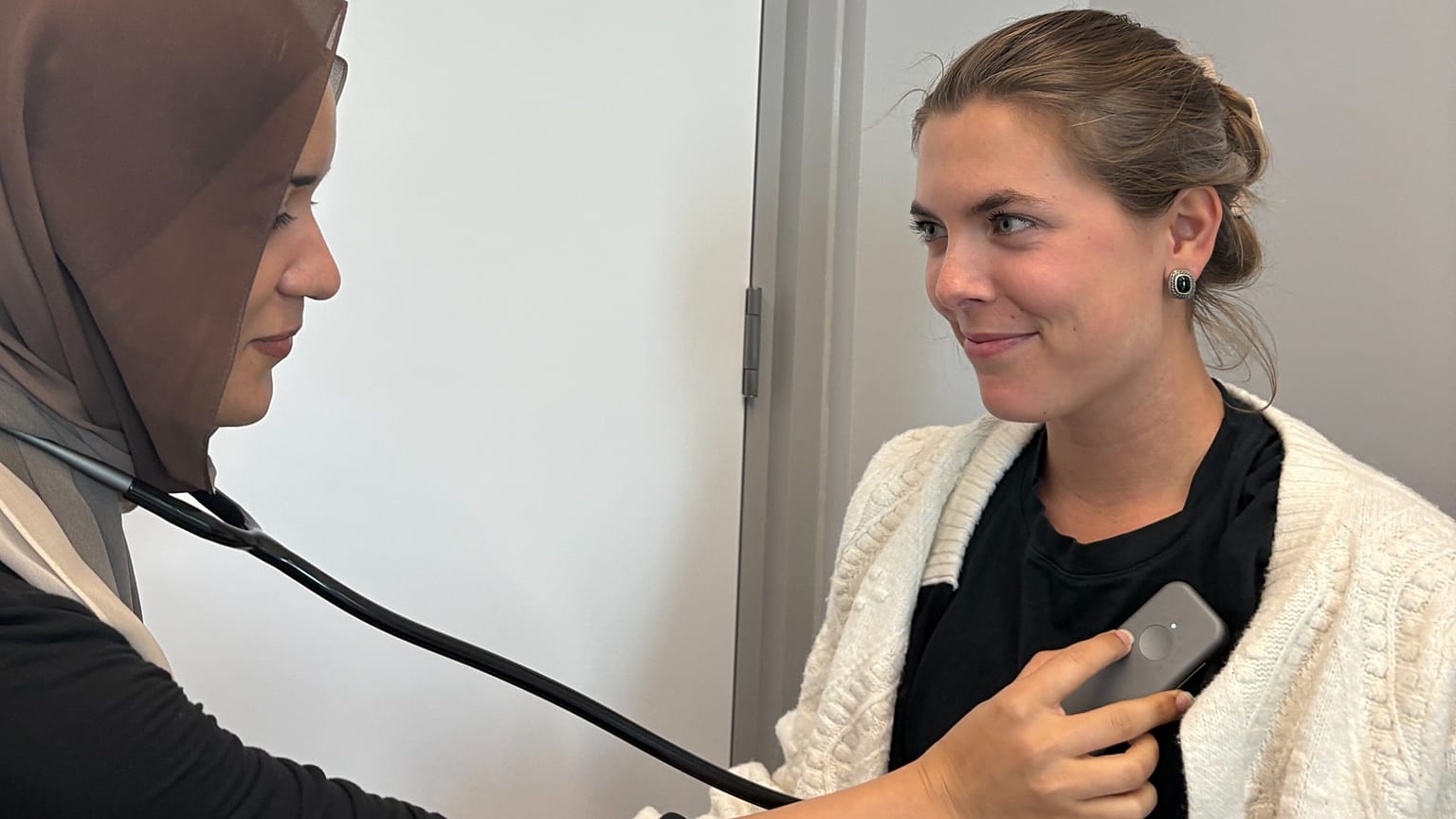Health
UK Researchers Unveil AI Stethoscope That Detects Heart Issues in Seconds

A new artificial intelligence (AI) stethoscope can identify three significant heart conditions in just 15 seconds, according to researchers in the United Kingdom. The device analyzes subtle changes in heartbeat and blood flow that are often imperceptible to the human ear, thus allowing for quicker diagnosis and subsequent medical intervention.
This innovative stethoscope, developed by Eko Health, was tested in a real-world trial involving over 200 general practitioner (GP) offices and more than 1.5 million patients exhibiting symptoms such as fatigue and shortness of breath. The findings were presented at the European Society of Cardiology’s annual meeting held in Madrid.
Study Findings and Diagnostic Capabilities
The AI stethoscope significantly enhanced diagnostic capabilities. Patients assessed with this technology were more than twice as likely to receive a diagnosis of heart failure. The likelihood of being diagnosed with atrial fibrillation—an irregular heartbeat that increases the risk of stroke—was about 3.5 times higher. Additionally, the device nearly doubled the chances of identifying heart valve disease, a condition where at least one heart valve fails to function properly.
Dr. Sonya Babu-Narayan, a cardiologist and clinical director at the British Heart Foundation, remarked that this is “an elegant example of how the humble stethoscope, invented more than 200 years ago, can be upgraded for the 21st century.” However, the study also revealed that approximately two-thirds of patients flagged by the AI stethoscope as potentially having heart failure did not, in fact, have the condition. This discrepancy was confirmed through subsequent blood tests and heart scans.
Concerns Over Oversensitivity and Usage
The researchers acknowledged that the stethoscope’s high sensitivity could lead to unnecessary anxiety and additional testing for some patients. They recommended that its use be limited to individuals with suspected heart issues rather than as a routine health check tool. Despite the potential benefits, the trial revealed a significant drop in regular use; one year after receiving the AI stethoscopes, 70 percent of GP offices ceased to use them consistently.
Dr. Nicholas Peters, a senior investigator from Imperial College London, emphasized the importance of quickly identifying heart conditions. He stated, “Our study shows that three heart conditions can now be identified in one sitting.” This rapid detection could facilitate timely treatment and improve patient outcomes, especially since many individuals are only diagnosed with heart failure during a medical emergency.
The urgency for enhanced diagnostic tools is underscored by the fact that over one million people in the United Kingdom and around 60 million people globally are estimated to suffer from heart failure. Dr. Babu-Narayan added, “Given an earlier diagnosis, people can access the treatment they need to help them live well for longer.”
The integration of AI into healthcare signifies a promising shift towards more efficient and accurate medical diagnostics, potentially transforming patient care in the years to come.
-

 Top Stories3 months ago
Top Stories3 months agoTributes Surge for 9-Year-Old Leon Briody After Cancer Battle
-

 Entertainment4 months ago
Entertainment4 months agoAimee Osbourne Joins Family for Emotional Tribute to Ozzy
-

 Politics4 months ago
Politics4 months agoDanny Healy-Rae Considers Complaint After Altercation with Garda
-

 Top Stories4 months ago
Top Stories4 months agoIreland Enjoys Summer Heat as Hurricane Erin Approaches Atlantic
-

 World5 months ago
World5 months agoHawaii Commemorates 80 Years Since Hiroshima Bombing with Ceremony
-

 Top Stories3 months ago
Top Stories3 months agoNewcastle West Woman Patricia Foley Found Safe After Urgent Search
-

 Top Stories5 months ago
Top Stories5 months agoFianna Fáil TDs Urgently Consider Maire Geoghegan-Quinn for Presidency
-

 World5 months ago
World5 months agoCouple Convicted of Murdering Two-Year-Old Grandson in Wales
-

 World5 months ago
World5 months agoGaza Aid Distribution Tragedy: 20 Killed Amid Ongoing Violence
-

 World5 months ago
World5 months agoAristocrat Constance Marten and Partner Convicted of Infant Murder
-

 Top Stories4 months ago
Top Stories4 months agoClimbing Errigal: A Must-Do Summer Adventure in Donegal
-

 Top Stories4 months ago
Top Stories4 months agoHike Donegal’s Errigal Mountain NOW for Unforgettable Summer Views









